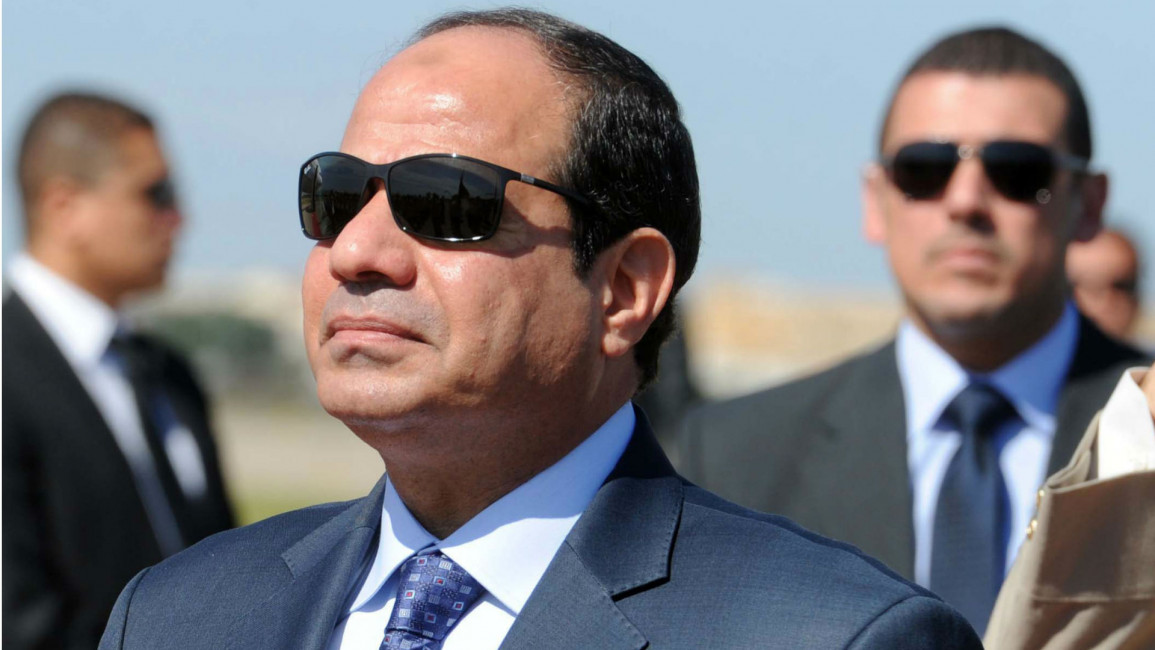
A very Arab media ethics coup
The recent diplomatic impasse between the Moroccan and Egyptian governments has been handled in a uniquely Arab manner.
One week ago, the foreign minister of Egypt, Sameh Shoukry, flew to Rabat to meet his Moroccan counterpart, Salaheddine Mazouar, to patch up increasingly frayed relations.
And it followed a uniquely Arab war of words in the media.
| Those who naively cheered the belated awakening of the official Moroccan media deserve nothing but pity. |
'Coup leader'
On 3 July 2013, Mohammad Morsi was overthrown as president of Egypt, and his Muslim Brotherhood government replaced by a military council, headed by Abdel Fattah al-Sisi.
When the interim leader was elected president by more than 96 percent a year later, King Mohammed of Morocco congratulated Sisi on his election win.
But by January 2015, two Moroccan state-run television channels were describing Sisi as "the coup leader".
To describe the overthrow of Egypt's first democratically elected president as a coup is a sensitive, even taboo subject in Egypt. Sisi and his allies their rule to be seen as legitimate.
What made things worse for relations between the two countries, however, was when Moroccan state TV went into specifics. It detailed how, following the July coup, the constitution had been suspended in Egypt, hundreds of activists and opposition politicians were arrested, the democratic course of transition was aborted - and, the channel said, all of this to put an end to the ambitions of the Egyptian people.
Moroccan state TV went beyond a simple characterisation of the coup. Presenters instead took turns to emphasize the economic decline of Egypt under Sisi's rule, point out how press freedom had been suspended, with journalists behind bars, and highlight the murder of activists.
Understanding state media
In most countries around our region, however, much of the media is essentially a mouthpiece for the ruling regimes. And so many suspected that the change in tone of Morocco's "official" media outlets reflected Rabat's real views about Sisi's Egypt.
Thus the importance of the meeting between the two foreign ministers. Once relations were repaired, normality resumed. A statement issued after the consultation reaffirmed Morocco's support for Sisi as the legitimate ruler of Egypt, stating casually that the president was "fairly elected", and the Moroccan state backed his country's fight against "terrorism".
"[We] support the democratic transition in Egypt and the road map the Egyptian people adopted in the wake of the 30 June revolution," the statement read.
In effect, the Moroccan authorities had rebelled against state media.
But this stance also hints at a profound disrespect for public opinion, and smacks of manipulation, and even deception. After all, was this statement an accurate reflection of the views of the Moroccan people towards Sisi, or had state television channels previously better understood the mood on the streets?
The Moroccan regime, which controls state media, is responsible for a grave violation of key ethics of journalism - the credibility of media discourse.
Other arms of government are to blame, too. The television channels are part of the public sector, which is financed by the taxpayer.
Criticism should also be levied at the ministry of telecommunications, which oversees the media.
Finally to blame are the journalists, who remained silent while all these "coups" against their ethics were taking place.
As for those who naively cheered the belated awakening of the official Moroccan media, highlighting the true nature of Sisi's rule, they deserve nothing but pity.
They had clearly not come to terms with the fact that state media in authoritarian countries can never be anything but mouthpieces. When the "pro-coup" statement was announced by the ministers, it soon appeared on the two television channels that had previously criticised Sisi.
Political miscalculation
It leaves the leaders of Morocco's ruling Islamist party in an awkward situation. The Justice and Development Party had stood accused by Egypt's state media of having "inserted" anti-coup news reports into state television broadcasts.
Although this might seem like a just another conspiracy theory, such an accusation would not be not completely devoid of truth.
When state TV damned the Sisi government, the Moroccan Islamist party praised the condemnation on their official website. It also happens that these media are under the management of an Islamist minister, and he is supervised by his own party.
However, when the authorities reiterated their support for the military coup in Egypt, the Justice and Development Party remained silent. This raises questions about the relationship between ethics and politics.
The Moroccan government's decision to pursue a Machiavellian policy, where the end justifies the means, will not stop people from understanding the nature of the regime. Deception and hypocrisy can be used to reach an end because, as Machiavelli said, the value of actions should be measured by outcomes only, not the principles at stake.
As for those who claim to be exercising politics through faith-based ethics, then in Islam, ethics and politics are interrelated, and there is no politics without ethics. When ethics collapse, politics is ruined. And politicians - at least in the public eye - fall from grace even if they remain in their posts.
This article is an edited translation from our Arabic edition.
Opinions expressed in this article remain those of the author and do not necessarily reflect the opinions of al-Araby al-Jadeed, its editorial board or staff.




